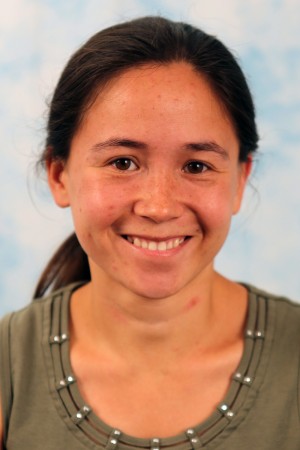PhD Thesis Proposal
Efficient Interactive Learning with Unobserved Confounders
Abstract: Interactive learning systems like self-driving cars, recommender systems, and large language model chatbots are becoming increasingly ubiquitous in everyday life. From a machine learning perspective, the key technical challenge underlying such systems is that rather than simple prediction on i.i.d. data, an interactive learner influences the distribution of inputs it sees via the choices [...]
Learning to Manipulate Using Diverse Datasets
Abstract: Manipulation is a key challenge in the robotic fields that impedes the deployment of robots in real-world scenarios. While notable advancements have been made in solving high/mid level planning problems, such as decomposing tasks (e.g. "bring me a bottle") into primitives (e.g. "pick up bottle"), the acquisition of fundamental manipulation primitives remains a difficult [...]
Unified Control for Over and Fully-Actuated Aerial Vehicles
Abstract: The growing domain of aerial robotics necessitates advancements in the control strategies and robustness of over-actuated and fully-actuated aerial vehicles. This thesis proposal makes contributions to this endeavor by providing in-depth analysis and methodologies concerning these vehicles, control allocation strategies during actuator failures, high-fidelity simulations, and a unified control framework. Our completed work has [...]
Personalized Context-aware Affective Nonverbal Robot Feedback
Abstract: We first consider the problem of estimating context, specifically key features of the human state. We predict engagement-related events in an educational activity before the end of that activity, which could allow the robot to provide feedback early enough to improve the human's experience. We then explore generating nonverbal affective robot behavior by correlating [...]
Watch, Practice, Improve: Towards In-the-wild Manipulation
Abstract: The longstanding dream of many roboticists is to see robots perform diverse tasks in diverse environments. To build such a robot that can operate anywhere, many methods train on robotic interaction data. While these approaches have led to significant advances, they rely on heavily engineered setups or high amounts of supervision, neither of which [...]
Preference Based Optimization of Multi-Objective Robot Performance
Abstract: Robotic systems often require that tradeoffs be made--for example, between performance and robustness, power and longevity, or efficiency and safety. While roboticists can design cost functions with hand-picked weights for different metrics, it is not always a straightforward task, particularly when some aspects of performance are not easily quantified. This can occur especially when [...]
Ensuring safety for uncertain high-dimensional robotic systems
Abstract: Two major obstacles for safe control and planning are (1) scaling to high-dimensional systems and (2) handling uncertain systems. This is problematic because such systems are ubiquitous in practice: e.g. drones with unknown drag, manipulators carrying unknown packages. In this proposal, we aim to address both challenges. At the control level, we have synthesized [...]
Trustworthy Learning using Uncertain Interpretation of Data
Abstract: Non-parametric models are popular in real-world applications of machine learning. However, many modern ML methods that ensure that models are pragmatic, safe, robust, fair, and otherwise trustworthy in increasingly critical applications, assume parametric, differentiable models. We show that, by interpreting data as locally uncertain, we can achieve many of these without being limited to [...]
Allocation, Planning, and Control in Off-road Automated Convoy Operations
Abstract: The lack of structure in off-road terrains makes off-road operations of automated platforms difficult. The difficulty arises from uncertainty in the optimality and safety of the actions (e.g., planning and control) taken by the automated platform. When multiple automated platforms are required to act in a coordinated manner (e.g., a convoy) in complex cluttered [...]
Learning Generalizable Robot Skills for Dynamic and Interactive Tasks
Abstract: Enabling robots to perform complex dynamic tasks such as picking up an object in one sweeping motion or pushing off a wall to quickly turn a corner is a challenging problem. The dynamic interactions implicit in these tasks are critical for successful task execution. Furthermore, given the interactive nature of such tasks, safety, in [...]
Low-Cost Multimodal Sensing and Dexterity for Deformable Object Manipulation
Abstract: To integrate robots seamlessly into daily life, they must be able to handle a variety of tasks in diverse environments, like assisting in hospitals or cooking in kitchens. Many of the items in these environments are deformable such as bedding in hospitals or vegetables in kitchens, and a certain level of dexterity is necessary [...]
Learning Safe Human-Robot Interactions for a Seamlessly Shared Airspace
Abstract: The growing need for fully autonomous aerial operations in shared spaces, necessitates the development of reliable agents capable of navigating safely and seamlessly alongside uncertain human agents. In response, we advocate endowing autonomous agents with the ability to predict human actions, comprehend and ground abstract rules in the action space, and embrace the uncertainty [...]
Informative Path Planning Toward Autonomous Real-World Applications
Abstract: Gathering information from the physical world plays a crucial role in many applications—whether it be scientific research, environmental monitoring, search and rescue, defense, or disaster response. The utilization of robots for information gathering allows for the leveraging of intelligent algorithms to efficiently collect data, providing critical insights and facilitating informed decision-making. These autonomous robots [...]
Efficient Sensor Coverage in Complex Environments
Abstract: This thesis develops sensor coverage algorithms for mobile robots that are scalable to large and complex environments. The core challenge is computing the shortest paths that can direct one or more robots to sweep onboard sensors over all accessible surfaces within an environment. This problem resembles the watchman route problem that is known to [...]
Combining Physics-Based Light Transport and Neural Fields for Robust Inverse Rendering
Abstract: Inverse rendering — the process of recovering shape, material, and/or lighting of an object or environment from a set of images — is essential for applications in robotics and elsewhere, from AR/VR to perception on self-driving vehicles. While it is possible to perform inverse rendering from color images alone, it is often far easier [...]
Robotic Climbing for Extreme Terrain Exploration
Abstract: Climbing robots can operate in steep and unstructured environments that are inaccessible to other ground robots, with applications ranging from the inspection of artificial structures on Earth to the exploration of natural terrain features throughout the solar system. Climbing robots for planetary exploration face many challenges to deployment, including mass restrictions, irregular surface features, [...]
Exploration for Continually Improving Robots
Abstract: General purpose robots should be able to perform arbitrary manipulation tasks, and get better at performing new ones as they obtain more experience. The current paradigm in robot learning involves imitation or simulation. Scaling these approaches to learn from more data for various tasks is bottle-necked by human labor required either in collecting demonstrations [...]
Deep 3D Geometric Reasoning for Robot Manipulation
Abstract: To solve general manipulation tasks in real-world environments, robots must be able to perceive and condition their manipulation policies on the 3D world. These agents will need to understand various common-sense spatial/geometric concepts about manipulation tasks: that local geometry can suggest potential manipulation strategies, that policies should be invariant across choice of reference frame, [...]
Towards diverse zero-shot manipulation via actualizing visual plans
Abstract: In this thesis, we seek to learn a generalizable goal-conditioned policy that enables zero-shot robot manipulation — interacting with unseen objects in novel scenes without test-time adaptation. Robots that can be reliably deployed out-of-the-box in new scenarios have the potential for helping humans in everyday tasks. Not requiring any test-time training through demonstrations or [...]


















